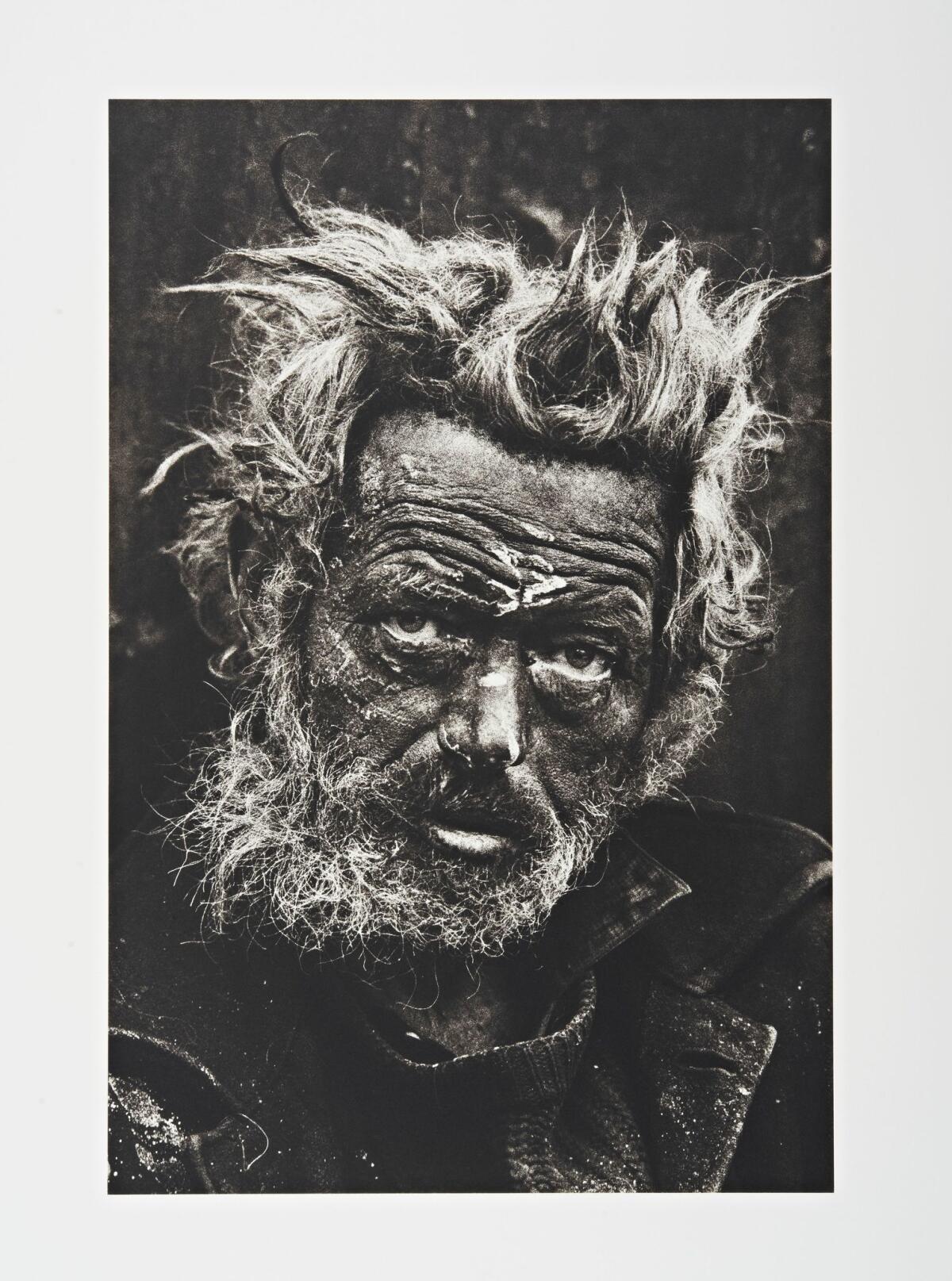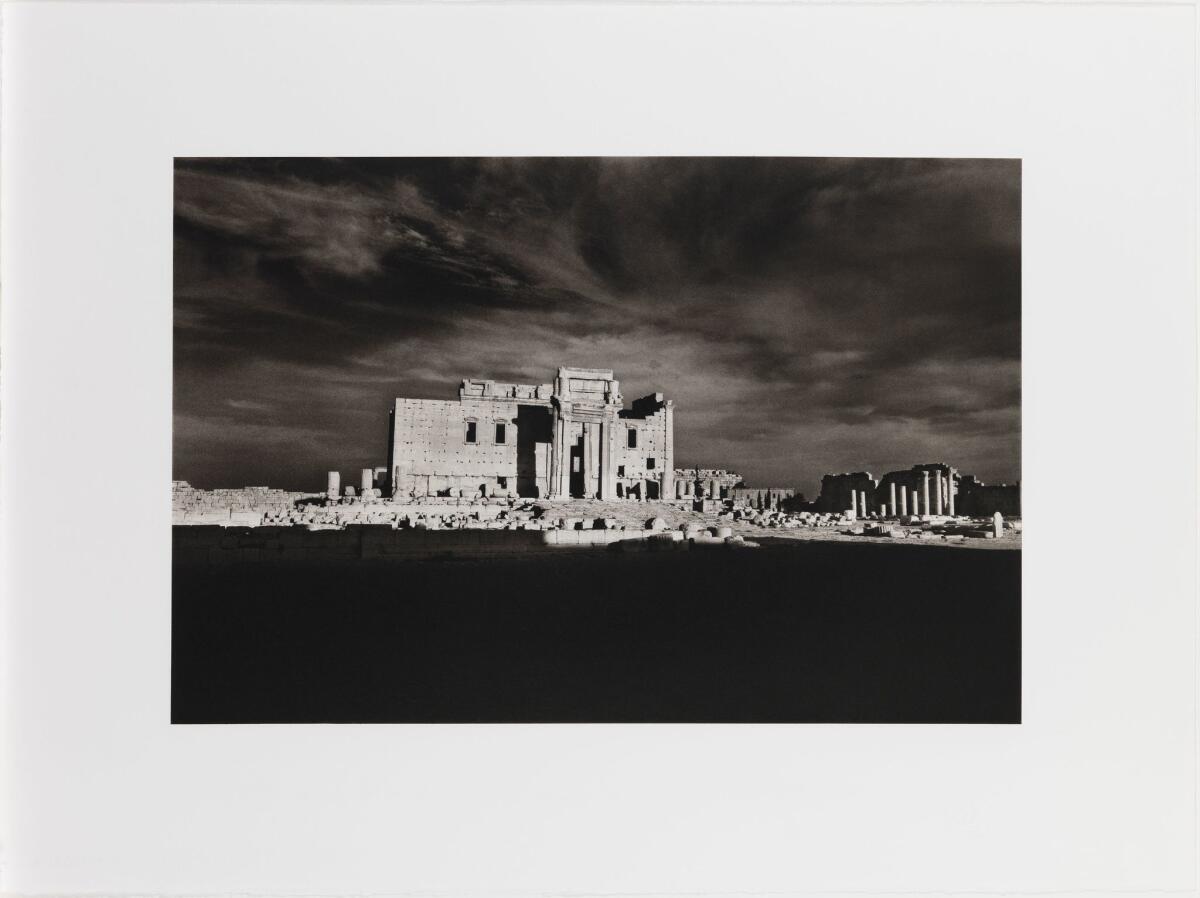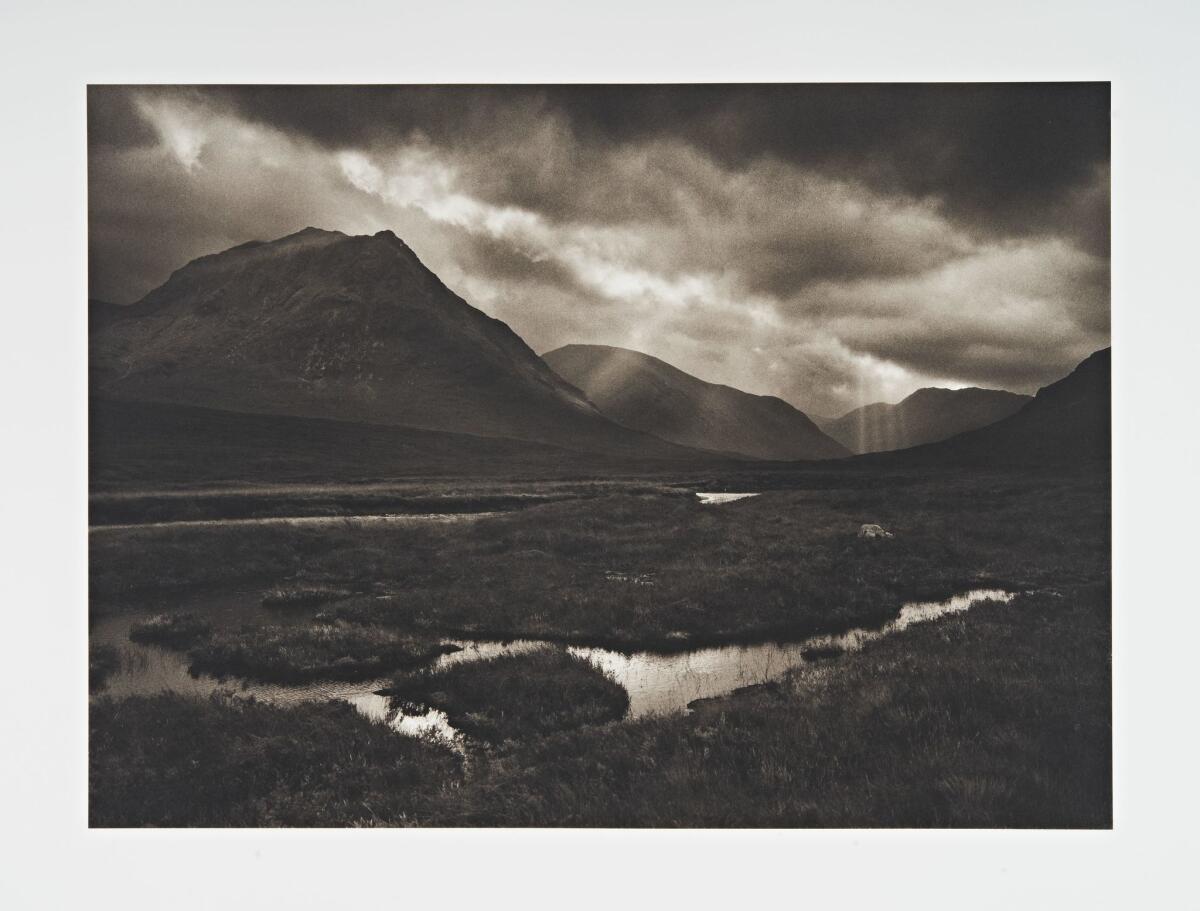Review: For war (and antiwar) photographer Don McCullin, a focus on humanity in an inhumane world
- Share via
In the early 1970s, a decade into shooting conflicts around the world, Don McCullin said in the exhibition catalog "The Concerned Photographer 2": "I haven't got very much longer to go at being a war photographer. I mean the chips are down already."
And yet a few years ago, at 80, McCullin could be found in Iraq, camera in hand.
McCullin is a giant in the field of war reportage, though you'd barely know it from his show at the Hauser & Wirth gallery in Los Angeles. Billed as the London-born, Somerset-based photojournalist's first gallery exhibition in the U.S., it's more missed opportunity than proper introduction. At just under 30 pictures, it presents a thin slice — more frosting than cake — of a broad and deep career chronicling military, political, social and economic strife.

McCullin navigates the prickly moral terrain of capturing murder, vulnerability and duress with empathy that proves indistinguishable from bravery. His 1971 portrait of a homeless man collapses the distance between us and the unsettling other, in the name of humanizing both. The skin of the subject's tightly framed face is as gray as if it were inked, and his hair is a turbulent sea of stiff tufts. In his eyes — in the clarity of the man's direct gaze — we experience true equivalence.
The show is altogether easy to miss in its two modest spaces within the Hauser & Wirth compound. It includes more of McCullin's war memorabilia (boots, helmet, rations) than his photographs from the conflict zones he entered: Cyprus, Lebanon, Israel, Biafra (Nigeria), El Salvador, Congo, Northern Ireland. He has expressed dismay at being known as a war photographer — perhaps a better label would be antiwar photographer — but his strongest, most distinctive work has been as witness to the malignancies of human behavior.


A U.S. Marine in Vietnam in a 1968 photograph presents as both individual and icon. McCullin studies, with tenderness, his slightly upturned stare, dulled and diffused by shell shock. In a striking 2006 view of the Roman Temple of Bel in Palmyra, Syria, the majestic structures appear to rise from a dark void — an augury of their return to nothingness a decade later, demolished by ISIS.
McCullin has also made rich, brooding landscapes and meticulous, musical still-lifes. Both are represented here, as are numerous, handsome observations of everyday life and cultural rituals in Indonesia, India, Ethiopia and beyond. A recently published, three-volume retrospective of McCullin's work is titled "Irreconcilable Truths." For nearly 60 years, that is what he has pursued — with an incisive eye, a reflective mind, and a restless, haunted soul.
Hauser & Wirth, 901 E. 3rd St., L.A. Through Sept. 23; closed Sundays and Mondays. (213) 943-1620, hauserwirth.com

See all of our latest arts news and reviews at latimes.com/arts.
The biggest entertainment stories
Get our big stories about Hollywood, film, television, music, arts, culture and more right in your inbox as soon as they publish.
You may occasionally receive promotional content from the Los Angeles Times.







